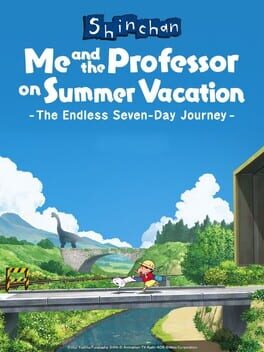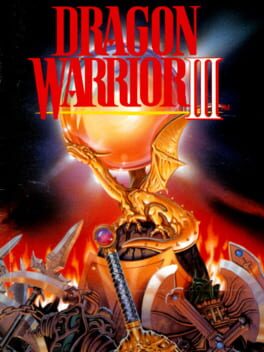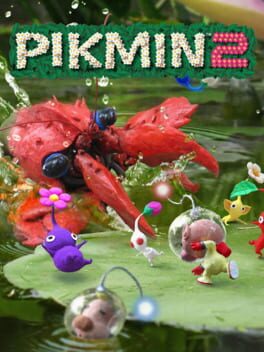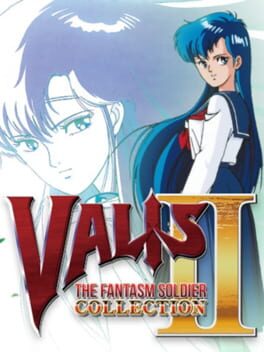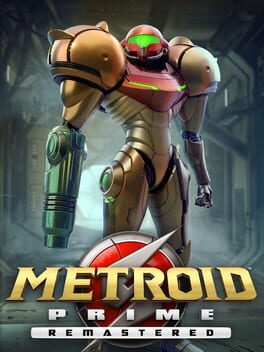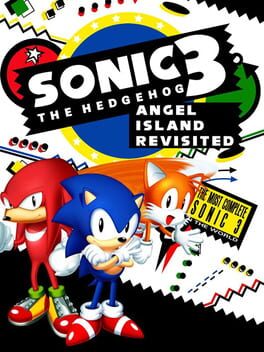I was wrong
Went into these games assuming one thing, came out knowing the opposite
10 Games
I was such a hardcore believer in this game before it came out. My friends were constantly met with barrages of "You gotta pick this one up dude," "This is the good shit," "We gotta encourage them to localize more of their games" – just knowing a Millennium Kitchen game was coming west (and that it didn't seem to have the lifeless cardboard taste of Attack of the Friday Monsters) was enough for me to assume it'd be a life-changing experience for anyone who wasn't familiar with their other games. Luckily, when it did eventually release, I got to it before any of my friends did and rescinded my preemptive praise as soon as I could so they would not make the same mistake I did. This might be the single video game I regret buying the most (for full price!); my reasons why can be found here.
Contrasting Shin-chan, I was absolutely positive this remake would bungle everything that made the original so timeless. It didn't help that the marketing material was atrocious: showcasing bizarre changes to the environment that completely ruin the pristine atmosphere that had been so masterfully constructed on the Super Famicom, almost exclusively highlighting the worst-voiced lines in the game, and constantly spoiling many significant moments in most of the chapters. A remake can either remain perfectly faithful to its source material and be content in bringing it to a new audience with minimal adjustments, or maintain the essence of the original while overhauling it to accommodate modern conventions; all the footage shown in trailers seemed to be some hellish combination of the worst aspects from both philosophies. With every new promotional video was a further sinking sadness that they just did not care about this game at all and every change strictly made the game worse, which is a terrible fate to befall such a magnificent, legendary, foundational work – not that I was especially surprised. All attempts at remaking their previous games continued to prove that Square Enix had no respect for their bygone masterpieces. LIVE A LIVE was simply another tragedy in a dreadful series of constantly sullying their past...
Luckily, my conditioning to expect a horrible remake out of Square Enix did not get in the way of my appreciation once the game was in my hands! Looking back, this conditioning certainly is responsible for how immediately scrutinous I was of the trailers – or more accurately, of remaking this game at all – and while some of those concerns were validated, certainly not all of them were. In the end, this wound up being an excellent remake that shines in ways the original could not, but also falters in ways the original did not either. It's not a perfect remake, but it is the closest Square Enix has ever gotten to effectively, lovingly, and faithfully modernizing any of their games since their merger. Before this remake came out, I always told prospective players not to bother with it and instead play the original, but now I'd encourage anyone to play whatever version they think they'd prefer. There's strengths and weaknesses to both which the other fixes or makes worse to the point where they cancel each other out. LIVE A LIVE is a marvelous game and it's been remade marvelously – and I'm glad my initial skepticism was proven wrong!
Luckily, my conditioning to expect a horrible remake out of Square Enix did not get in the way of my appreciation once the game was in my hands! Looking back, this conditioning certainly is responsible for how immediately scrutinous I was of the trailers – or more accurately, of remaking this game at all – and while some of those concerns were validated, certainly not all of them were. In the end, this wound up being an excellent remake that shines in ways the original could not, but also falters in ways the original did not either. It's not a perfect remake, but it is the closest Square Enix has ever gotten to effectively, lovingly, and faithfully modernizing any of their games since their merger. Before this remake came out, I always told prospective players not to bother with it and instead play the original, but now I'd encourage anyone to play whatever version they think they'd prefer. There's strengths and weaknesses to both which the other fixes or makes worse to the point where they cancel each other out. LIVE A LIVE is a marvelous game and it's been remade marvelously – and I'm glad my initial skepticism was proven wrong!
Riding the high of playing Dragon Quest IV for the first time last year (which wound up becoming my personal favorite Dragon Quest and one of my favorite games ever), I cracked open Dragon Quest III like a freezing can of lemonade on a sweltering summer afternoon. Years of hearing that this is not only the best Dragon Quest, but the single most important JRPG in the history of the genre inspired a monstrous thirst in me, desperate to glug this thing down until I couldn't breathe anymore. Even beyond Dragon Quest IV, I have a deep and reverent love for the very first Dragon Quest, along with other JRPGs from this era like the first Phantasy Star and Final Fantasy. That cryptic grindy shit is what I love. To finally play this granddaddy touted as The Best One Ever felt like I was about to lose a secret second virginity (or maybe it tends to be many video gamists' first?).
The rest of this entry will contain sacrilegious blasphemy. Now is the time for those with weak constitutions to please continue on to the next game on this list. I would like to apologize to the JRPG community and to Yuji Horii personally for what I am about to say: Dragon Quest III kinda sucks. If it weren't for X being an MMO, III would currently be my least favorite Dragon Quest! One of the aspects I love so much about Dragon Quest is how considerately the gameplay and world are built around a bespoke group of fascinating, charming characters who utilize unique abilities that compliment their personality and narrative significance. I understand it was IV which helped determine this trajectory for the series, but for III have an insignificant, inconsequential rotation of randomly generated party members with no story relevance makes it harder to be invested in this third entry than it was to get invested in even the very first game (in other words, I have never enjoyed dynamic class systems and would rather a game be built around a curated array of deliberate options; I disliked Final Fantasy V for the same reasons). As far as the story that does exist in this game – which is in fact "better" than the first game's, though that is an absurdly low bar to clear and the fact that it's a relief speaks for itself – it is excruciatingly plodding and directionless. Two of the first three dungeons in the game are (different!) towers with (different!) thieves at the top who have (different!) mandatory progression items with no significance to the overall plot. I played this game for about 10 hours waiting for anything meaningful to happen. 10 hours of waiting for anyone to say anything interesting, any kind of development on the situation with my dead dad, any semblance of any kind of plot at all. Literally anything! The whole time I got absolutely nothing. Just getting dragged around with some party members I know nothing about and have no attachment to in a world I know nothing about and have no attachment to getting items I know nothing about and have no attachment to for characters I know nothing about and have no attachment to. Eventually I got fed up, decided to stop trying to play this game, and sought out some of the story beats that would eventually appear. They were pretty good. I can understand why a young Dragon Quest player in 1988 would be impressed by it. But compared to something like Phantasy Star, Final Fantasy, or even The First Dragon Quest Game, Dragon Quest III is so meandering and charmless that despite my love for these old, crotchety, musty, awkward early JRPGs, this one proved to be shockingly hopeless. It was heartbreaking to finally realize that, after all this time, Dragon Quest III actually just is not very good. At all. The conversations around this game are always about the Super Famicom and Gameboy Color versions so I have to assume they add more intrigue that this NES version was sorely lacking, but between this and the OTHER fan-favorite Dragon Quest V (which I had a similar experience with (the OTHER OTHER fan-favorite XI is a masterpiece)), I think there must be some kind of imperceptible disconnect between what I look for in a Dragon Quest game versus what Dragon Quest fans look for in a Dragon Quest game. It's strange, because I absolutely consider myself a fan of this series, but my tastes and appreciation for the series doesn't seem to align at all with the common fan consensus. I'll give those remakes of III a shot sometime, and I'm looking forward to the enigmatic HD-2D remaster, but for now I'll go on liking the Dragon Quests I like, not liking the ones I don't like, and not investing much stock in what the Dragon Quest fans say the best ones are.
The rest of this entry will contain sacrilegious blasphemy. Now is the time for those with weak constitutions to please continue on to the next game on this list. I would like to apologize to the JRPG community and to Yuji Horii personally for what I am about to say: Dragon Quest III kinda sucks. If it weren't for X being an MMO, III would currently be my least favorite Dragon Quest! One of the aspects I love so much about Dragon Quest is how considerately the gameplay and world are built around a bespoke group of fascinating, charming characters who utilize unique abilities that compliment their personality and narrative significance. I understand it was IV which helped determine this trajectory for the series, but for III have an insignificant, inconsequential rotation of randomly generated party members with no story relevance makes it harder to be invested in this third entry than it was to get invested in even the very first game (in other words, I have never enjoyed dynamic class systems and would rather a game be built around a curated array of deliberate options; I disliked Final Fantasy V for the same reasons). As far as the story that does exist in this game – which is in fact "better" than the first game's, though that is an absurdly low bar to clear and the fact that it's a relief speaks for itself – it is excruciatingly plodding and directionless. Two of the first three dungeons in the game are (different!) towers with (different!) thieves at the top who have (different!) mandatory progression items with no significance to the overall plot. I played this game for about 10 hours waiting for anything meaningful to happen. 10 hours of waiting for anyone to say anything interesting, any kind of development on the situation with my dead dad, any semblance of any kind of plot at all. Literally anything! The whole time I got absolutely nothing. Just getting dragged around with some party members I know nothing about and have no attachment to in a world I know nothing about and have no attachment to getting items I know nothing about and have no attachment to for characters I know nothing about and have no attachment to. Eventually I got fed up, decided to stop trying to play this game, and sought out some of the story beats that would eventually appear. They were pretty good. I can understand why a young Dragon Quest player in 1988 would be impressed by it. But compared to something like Phantasy Star, Final Fantasy, or even The First Dragon Quest Game, Dragon Quest III is so meandering and charmless that despite my love for these old, crotchety, musty, awkward early JRPGs, this one proved to be shockingly hopeless. It was heartbreaking to finally realize that, after all this time, Dragon Quest III actually just is not very good. At all. The conversations around this game are always about the Super Famicom and Gameboy Color versions so I have to assume they add more intrigue that this NES version was sorely lacking, but between this and the OTHER fan-favorite Dragon Quest V (which I had a similar experience with (the OTHER OTHER fan-favorite XI is a masterpiece)), I think there must be some kind of imperceptible disconnect between what I look for in a Dragon Quest game versus what Dragon Quest fans look for in a Dragon Quest game. It's strange, because I absolutely consider myself a fan of this series, but my tastes and appreciation for the series doesn't seem to align at all with the common fan consensus. I'll give those remakes of III a shot sometime, and I'm looking forward to the enigmatic HD-2D remaster, but for now I'll go on liking the Dragon Quests I like, not liking the ones I don't like, and not investing much stock in what the Dragon Quest fans say the best ones are.
This one I played on the recommendation of someone who I never thought would steer me wrong: Yoshiro Kimura. During his discussion with the game's creator, Kimura had nothing but glowing praise for Bear's Restaurant. Is it possible he was just being kind since he was talking with Daigo? On the other hand, why would Kimura invite Daigo on to his show at all unless he truly enjoyed the game? It's confounding how someone responsible for several of the most intimate, honest, and heartfelt video games in the history of the medium could find any value at all in a game so devoid of any truth or humanity as Bear's Restaurant. My more in-depth thoughts can be found here, but the fact of the matter is that I went in expecting a game worthy of praise from the founder of Onion Games, only to find a sloppy caricature of various popular video games cobbled together by someone who has clearly has no lived experiences with any of the subject matter attempting to be depicted. This is what happens when a video game is made by someone who never experiences anything outside of video games (and its average rating on this website reveals something similar).
I don't even remember why I played NieR: Automata. I know at the time I had finally just upgraded from a laptop to my very first personal desktop computer and I was hungry to start playing games my old machine wouldn't have been capable of handling... But the exact reason why I settled on NieR: Automata escapes me. It certainly was a strange choice; I didn't have any particular interest in the game prior to playing it. I had heard some whispers every now and then about how it's apparently some sort of masterpiece, but I figured it was the usual video gamist posturing of trying to justify something that doesn't deserve the justification. Actually, that's probably exactly what got me to pull the trigger; I'm regularly driven by this curiosity to see the true heart of something for myself. I probably just wanted to see if these rumors about this being more than an action game with robot ass were founded in any kind of reality or if it was another delusion of the desperate video gamist trying to prove that video games ARE art, actually (the more you say it the more non-video gamists believe you! It's normal and cool to beg and plead to convince others that your art form is valid! All the "real" art forms do it all the time!). Well, at the time, I absolutely ate it up! I was quickly drawn in by NieR: Automata's thrilling introduction and continued to be compelled further and further into the game's luscious drama and rapidly compounding themes. These were meaningful, intellectual themes that video games Never Really Touch On. Intellectual themes in a video game! Can you imagine anything cooler than that? I felt vindicated that a video game was treating me like an adult (I was 20 years old). At the time, I equated how it affected me as an adult to how MOTHER 3 affected me as a child. Maybe you can tell by my tone that this has since worn off – that's right, I was wrong about NieR: Automata not just once, but twice. My feelings now align more with how I felt about the game before I played it than with my immediate feelings during the playthrough. I absolutely respect and appreciate what NieR: Automata did for me at that time in my life, I'm not embarrassed by the fact that I was so moved by this game nor do I look down on anyone who had a similar epiphanous experience with it. It simply struck me at exactly the right time in my life to be maximally effected. I do, however, think it's telling that only a few more years of life experience and media literacy has since washed away all the magic that I saw during this initial encounter. While NieR: Automata does still boast a number of scenes I believe to be masterfully done, most of the experience delves into these "intellectual themes" as shallowly as it needs to in order to give the impression of being meaningful without exploring them much beyond their suggestion. Much of the subject matter is hoisted whole-sale from games that had already pioneered these concepts in the medium decades earlier, though none ever singularly became remotely as popular as NieR: Automata. The reason for this is simple: these were Weird Games. Strange games for freaks who expected more from games than what the market was ready for. It's almost Nintendo-like in this way; far from the first, but certainly the loudest. This is how NieR: Automata lit the world on fire: not by being the first or the best, but by being the most accessible. There's something to be said for this – nobody starts in the deep end, there needs to be an entry point for everything – but now that I'm so much more aware of what games and The World have to offer, I can't keep pretending that NieR: Automata is really doing anything worth all the praise.
I've tended to stay away from games like this due to their dominance over the current culture. Having so many indie developers suddenly hop on to a single trend seemingly overnight has me wary. This apprehension around the zeitgeist led me to completely write off Unpacking until I noticed I could check it out without sacrificing my scruples on Xbox Game Pass. My consequent turnaround is detailed here.
Yes, first I went after Dragon Quest III, now I'm going after Pikmin 2. Maybe the reason nobody kills sacred cows is because they don't taste as good? Despite having a more thematic focus on food, this game sure does not taste even remotely as good as the first Pikmin. I was positive going into this game that I'd like it more than the original game since I assumed the removal of the day limit meant the game would be more intricately crafted, being even more puzzle-box-y than Pikmin already was. If there's no limit on how many days the game can last, that means the game can really open up and allow for dynamic interplay with monsters and environments that would feel too limiting under a threat of a deadline, right? Wrong! What it means is Nintendo doesn't feel bad about wasting time anymore. Blow up the scale of the maps without properly accommodating the extra space. Add in some Mystery Dungeon mazes regardless of if the combat system makes sense in such tight corridors or not – and make them reeeeeaaaaalllllyyyyy long. That's fun, right? Pikmin is about being annoying and tedious, right? It's about having things take a long time, right? Every single gameplay element in the original game was crafted around a central concept of conciseness. It had to be this way on the account of the limited number of days; if the game wasted any of that precious limited time, it'd be awful! It wouldn't be the player's fault, it'd be the game's, which would be discouragingly frustrating and blatantly unfun. Apparently video gamists think it's excellent when this happens without a time limit, though. The only time I've seen a direct sequel so disastrously misunderstand its own appeal is... Well... I guess in a lot of other Nintendo games, mostly. Animal Crossing, Zelda, 3D Mario... So maybe I should have seen this coming, but I was blindsided by the fact that Pikmin 2 is so ubiquitously accepted as the single best game in the series. The way Pikmin 2 fans talk about the game had me convinced I would love it, but now it feels like they're talking about a totally different game from the one I played. It's just not good.
The second Valis Collection's inclusion on this list differs from the others in that most of the relevant concerns exist outside of the game itself. Anybody familiar with these games understands that the selection housed in this collection is pitiable, to the point that the collection would be completely worthless without Valis IV. This collection is purely a collector's novelty, which seems to be keenly on purpose. If the fan-favorite Valis IV had been included alongside the rest of the actually good Valis games on the first collection (you'd expect the numbered mainline games to all be together, right?), this second one would have absolutely zero reason to exist. Yet here we are – and yet here I am, with both collections sitting pretty on my Gamer Shelf. This is what I was wrong about. As with Shin-chan, my friends can attest how actively I peddled the first Valis Collection even back when it was still getting funded, before it released. The prospect of having Valis make a grand return on modern platforms was exhilarating, and once again like Shin-chan, I was eager to help prove that there is an audience for more Valis games. The first collection released and was excellent, with many convenient quality-of-life features that fit well for a celebration of some stickier games that are less accessible by modern standards. I love that first collection! It stands as a symbol that the older, quirkier, less-beloved titles still had someone fighting for them somewhere. It felt grassroots, it felt passionate, it felt honest. Keen readers might notice a deliberate use of past-tense verbs there. Shortly after the first Valis Collection, Edia started revealing a little more of their hand – a hand I never even considered could exist to be revealed in the first place. Strange brand deals, several additional collector's editions, tendencies which suggested more of an interest in capital than preserving some oddball games that deserve more love. I already had doubts about if they really needed a public funding campaign to pull together a collection of emulated games, but I repressed those thoughts by convincing myself they were simply gauging interest in a niche property that hasn't had a relevant release in 20 years – and even then, its most relevant releases were never particularly celebrated or revered. Suddenly their intentions from the start felt a little more difficult to justify. By the time the second collection was revealed to be "Valis's Worst Hits (and also that Valis IV you wish came with the first one)", the mask was off and there was no denying that Valis fans were being predated on for our investment in a series that had left us high and dry for decades. We would take anything and Edia knew it. Despite being fully aware of this, I still bought the second collection anyways. I'm not proud of it. I'd say I got tricked, but I didn't even – it's like seeing someone pick my pocket, knowing it shouldn't be happening, but actively choosing not to do anything about it because the thief is wearing the t-shirt of a band I like. I've seen they're trying to pull this same stunt again with other Telenet games, this time a collection of their shoot-em-ups. I hope the Gaiares fans have been paying attention to how this Valis business has been faring (shout me out in the comments if you're a Gaiares fan that game rules).
Metroid Prime is a game I owned as a child on the GameCube, but I was too young to understand how to get past the first room. I eventually sold that copy of the game, then twelve years later I purchased the Metroid Prime Trilogy digitally on the Wii U with money I had earned across two part-time jobs after graduating high school. For some unknowable reason, I never launched that software even a single time. I was interested in playing it, but I never did. It sat untouched on my Wii U home screen for years. Six of those years later, the first Metroid Prime game was remastered for the Switch. Maybe I'm not the only one intrigued by the numerology of these time gaps. After managing to live alongside this game for my entire life yet never engaging with it, this would finally be the time I sat down for a playthrough. That playthrough made me think about a lot. Some of those thoughts have been chronicled here. Those will be the only thoughts I allow you to see for now.
The Sonic Adventure games are the only Sonic games I like – except for this one! The punched-up additional features lovingly implemented by an obviously dedicated fanbase turned an unimpressive game into a thoroughly enjoyable one. Going in I couldn't imagine that some extra fan intervention could convince me to like a Sonic game, but it did! No purple prose or intimate backstory here, I was just surprised that I liked a Sonic game. That's all!
